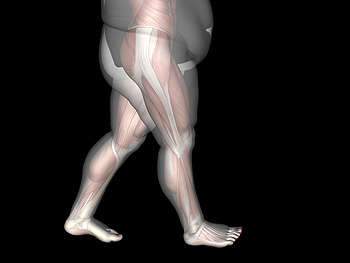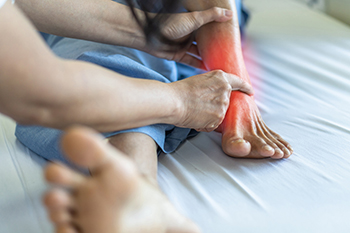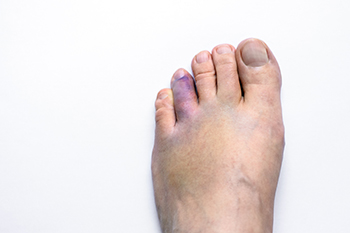159 North 3rd Street
Macclenny, Florida 32063

Finding the perfect pair of running shoes is the first step for any beginner embarking on their running journey. Your choice of footwear can significantly impact your comfort, performance, and overall running experience. It may help to have a podiatrist analyze your gait, arch type, and foot shape in order to guide your purchase. Consider where you plan to run most frequently. Different shoes are designed for specific terrains, such as road running, trail running, or even treadmill running. Comfort should be a top priority when trying on running shoes. They should feel snug but not too tight. Make sure there's ample room for your toes to wiggle and breathe. Take your time to try on several pairs and jog around the store to get a real feel for how they perform. Also, remember that running shoes have a limited lifespan, typically ranging from 350 to 500 miles, depending on terrain, running style, and body weight. Keep track of your mileage and be prepared to replace your shoes when they show signs of wear and tear. For more information on finding the right running shoe for you, it is suggested that you make an appointment with a podiatrist.
If you are a runner, wearing the right running shoe is essential. For more information, contact Dr. John L. Coleman from Florida. Our doctor can provide the care you need to keep you pain-free and on your feet.
Choosing the Right Running Shoe for Your Foot Type
To increase performance and avoid the risk of injury, it is important to choose the right running shoe based on your foot type. The general design of running shoes revolves around pronation, which is how the ankle rolls from outside to inside when the foot strikes the ground.
If you have any questions please feel free to contact our office located in Macclenny, FL . We offer the newest diagnostic and treatment technologies for all your foot and ankle needs.

Heel pain is a common complaint that can affect anyone, but it can be particularly challenging for those who are obese. The excess weight places additional stress on the feet, especially the heels, which bear the brunt of the load. This extra pressure can lead to various painful conditions, including plantar fasciitis, heel spurs, and Achilles tendonitis. Plantar fasciitis, in particular, is a frequent cause of heel pain. The plantar fascia, a thick band of tissue that runs along the bottom of the foot, can become strained and inflamed due to the increased weight. Fortunately, there are ways to manage and alleviate heel pain in obese individuals. Weight loss can significantly reduce the pressure on the feet and the pain. Wearing supportive footwear, custom orthotics, and stretching exercises may also help relieve discomfort. It is essential for those struggling with obesity to address their heel pain, as it can hinder mobility and overall well-being. Seeking help from a podiatrist is a crucial step toward finding relief and improving foot health. If you have heel pain and are overweight, it is suggested that you speak with this type of healthcare professional who can help you manage both conditions.
Obesity has become very problematic at this point in time and can have extremely negative effects on the feet. If you’re an obese individual and are concerned about your feet, contact Dr. John L. Coleman from Florida. Our doctor can provide the care you need to keep you pain-free and on your feet.
Obesity and Your Feet
Since your feet are what support your entire weight when standing, any additional weight can result in pain and swelling. Being overweight is one of the main contributors to foot complications.
Problems & Complications
Extra Weight – Even putting on just a few extra pounds could create serious complications for your feet. As your weight increases, your balance and body will shift, creating new stresses on your feet. This uneven weight distribution can cause pain, even while doing the simplest tasks, such as walking.
Diabetes – People who are overweight are at serious risk of developing type-2 diabetes, which has a drastic impact on the health of your feet. As you get older, your diabetes might worsen, which could lead to loss of feeling in your feet, sores, and bruises. You could also become more prone to various infections.
Plantar fasciitis – Pressure and stress that is placed on muscles, joints, and tendons can trigger plantar fasciitis, which is an inflammation of tissue that forms along the bottom of the foot.
If you have any questions please feel free to contact our office located in Macclenny, FL . We offer the newest diagnostic and treatment technologies for all your foot and ankle needs.

Ankle pain is a prevalent issue that can disrupt daily life and mobility and strike anyone, from athletes to sedentary individuals. To effectively manage and alleviate ankle pain, it's essential to understand the various underlying causes. Ankle sprains, strains, and fractures can often result from sports-related accidents, falls, or missteps. These injuries can damage ligaments, tendons, or bones, leading to pain and swelling. Common sources of ankle pain include osteoarthritis or rheumatoid arthritis, and may lead to chronic ankle pain due to joint inflammation and deterioration. Additionally, nerve compression syndromes, such as tarsal tunnel syndrome, can result in ankle pain, numbness, and tingling sensations. Identifying the specific cause of ankle pain is crucial in establishing effective treatment. A suitable approach for relief may include rest, medications, and in severe cases, surgical intervention. If you have ankle pain, it is suggested that you consult with a podiatrist who can effectively diagnose the cause and guide you toward the treatment that is right for you.
Ankle pain can have many different causes and the pain may potentially be serious. If you have ankle pain, consult with Dr. John L. Coleman from Florida. Our doctor will assess your condition and provide you with quality foot and ankle treatment.
Ankle pain is any condition that causes pain in the ankle. Due to the fact that the ankle consists of tendons, muscles, bones, and ligaments, ankle pain can come from a number of different conditions.
Causes
The most common causes of ankle pain include:
Symptoms
Symptoms of ankle injury vary based upon the condition. Pain may include general pain and discomfort, swelling, aching, redness, bruising, burning or stabbing sensations, and/or loss of sensation.
Diagnosis
Due to the wide variety of potential causes of ankle pain, podiatrists will utilize a number of different methods to properly diagnose ankle pain. This can include asking for personal and family medical histories and of any recent injuries. Further diagnosis may include sensation tests, a physical examination, and potentially x-rays or other imaging tests.
Treatment
Just as the range of causes varies widely, so do treatments. Some more common treatments are rest, ice packs, keeping pressure off the foot, orthotics and braces, medication for inflammation and pain, and surgery.
If you have any questions, please feel free to contact our office located in Macclenny, FL . We offer the newest diagnostic and treatment technologies for all your foot care needs.

A broken toe, though seemingly minor, can cause significant pain and disruption to daily life. The types and causes of these kinds of fractures encompass a range of scenarios. First, a common cause of a broken toe can happen when the toe is stubbed against a hard surface, and is often classified as a traumatic break. Second, stress fractures, which can result from repetitive impact, can occur, particularly in athletes or people who engage in rigorous physical activities. Fractures due to osteoporosis may also cause a broken toe, especially in the elderly. Vigorous activities, accidents, falls, and even dropping heavy objects onto the foot are common triggers for toe fractures. Recognizing the types and understanding the causes of broken toes is vital in seeking timely medical attention and implementing precautionary measures to prevent these painful disruptions. If you have broken your toe, it is suggested that you consult with a podiatrist who can accurately diagnose toe fractures and guide you toward the treatment method that is correct for you.
Broken toes may cause a lot of pain and should be treated as soon as possible. If you have any concerns about your feet, contact Dr. John L. Coleman from Florida. Our doctor will treat your foot and ankle needs.
What Is a Broken Toe?
A broken toe occurs when one or more of the toe bones of the foot are broken after an injury. Injuries such as stubbing your toe or dropping a heavy object on it may cause a toe fracture.
Symptoms of a Broken Toe
Although the injured toe should be monitored daily, it is especially important to have a podiatrist look at your toe if you have severe symptoms. Some of these symptoms include worsening or new pain that is not relieved with medication, sores, redness, or open wounds near the toe.
If you have any questions, please feel free to contact our office located in Macclenny, FL . We offer the newest diagnostic and treatment technologies for all your foot care needs.